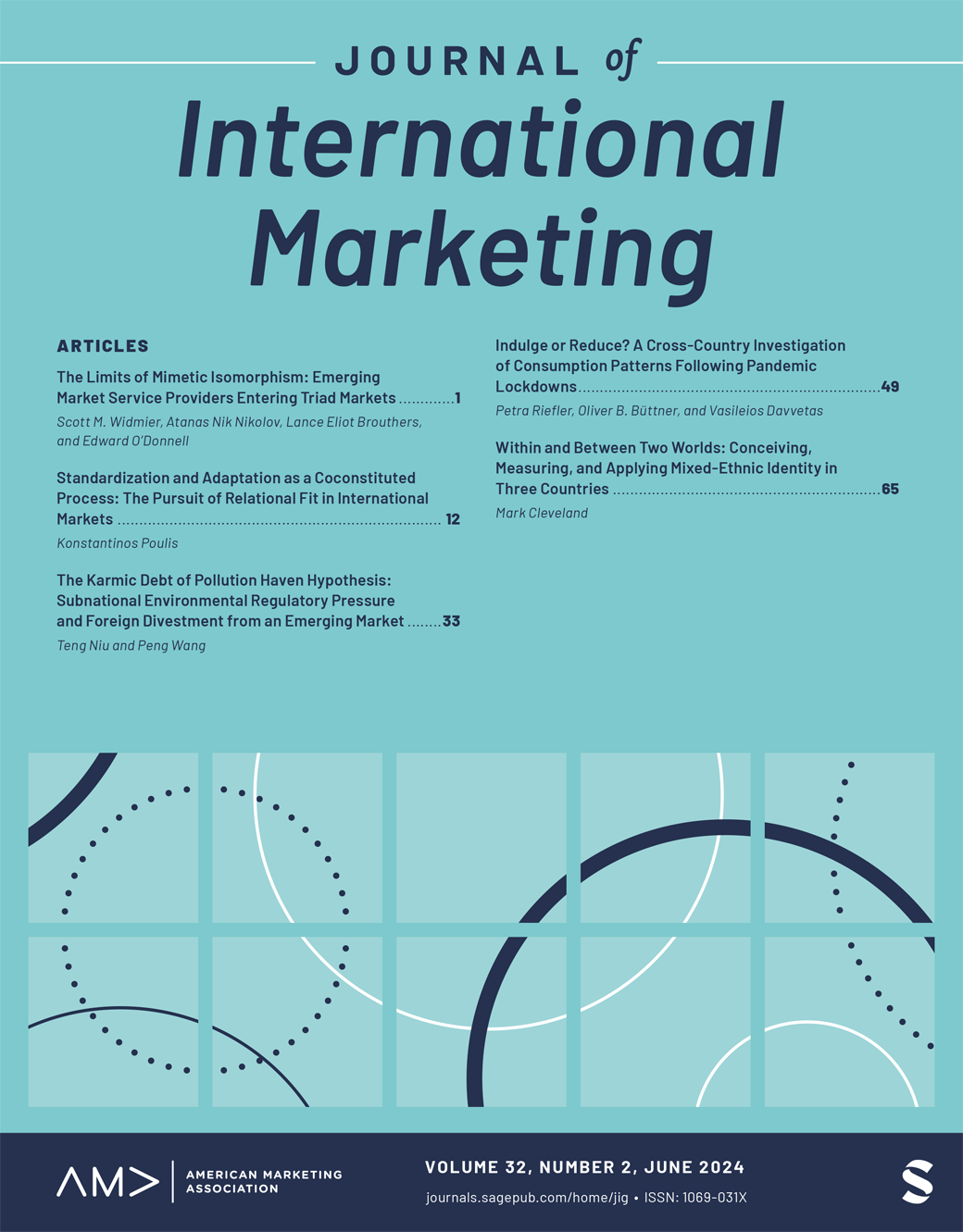选择剥夺,选择超载,以及六国的选择满意度
IF 4.9
2区 管理学
Q1 BUSINESS
引用次数: 4
摘要
消费者的选择是太少、太多还是理想数量,都会产生深远的影响。本研究在六个国家的六个选择领域探讨了选择剥夺(选择少于期望)和选择过载(选择多于期望)的模式,这些国家总共为大约一半的人口提供了家园(巴西、中国、印度、日本、俄罗斯和美国;合计N = 7,436)。在大多数国家的大多数领域,选择剥夺是一种常态——只有在美国,选择过载才被普遍报道。与超载相比,选择剥夺与选择满意度下降的关系更为密切,这表明选择剥夺可能比超载更常见,也更重要。本研究为消费者选择经验的“倒u形”理论提供了启示,并强调了在选择剥夺和过载研究中需要更多样化的样本,包括跨文化样本。本文章由计算机程序翻译,如有差异,请以英文原文为准。
Choice Deprivation, Choice Overload, and Satisfaction with Choices Across Six Nations
Whether consumers have too little, too much, or the ideal amount of choice can have profound consequences. The present research explores patterns of choice deprivation (having less choice than desired) and choice overload (having more choice than desired) across six choice domains in six countries that together provide home to about half the human population (Brazil, China, India, Japan, Russia, and the United States; combined N = 7,436). In most domains in most countries, choice deprivation was the norm—only in the United States was choice overload commonly reported. Deprivation was also more strongly related to decreased satisfaction with choices than was overload, suggesting that choice deprivation can be both more common and more consequential than overload. The present research has implications for “inverted U-shape” theories of consumer choice experiences and underlines the need for more diverse samples, including cross-cultural samples, in research on choice deprivation and overload.
求助全文
通过发布文献求助,成功后即可免费获取论文全文。
去求助
来源期刊

Journal of International Marketing
BUSINESS-
CiteScore
8.70
自引率
17.20%
发文量
28
期刊介绍:
As the globalization of markets continues at a rapid pace, business practitioners and educators alike face the challenge of staying current with the developments. Marketing managers require a source of new information and insights on international business events. International marketing educators require a forum for disseminating their thoughts and research findings. Journal of International Marketing(JIM) is an international, peer-reviewed journal dedicated to advancing international marketing practice, research, and theory. Contributions addressing any aspect of international marketing management are published each quarter.
 求助内容:
求助内容: 应助结果提醒方式:
应助结果提醒方式:


